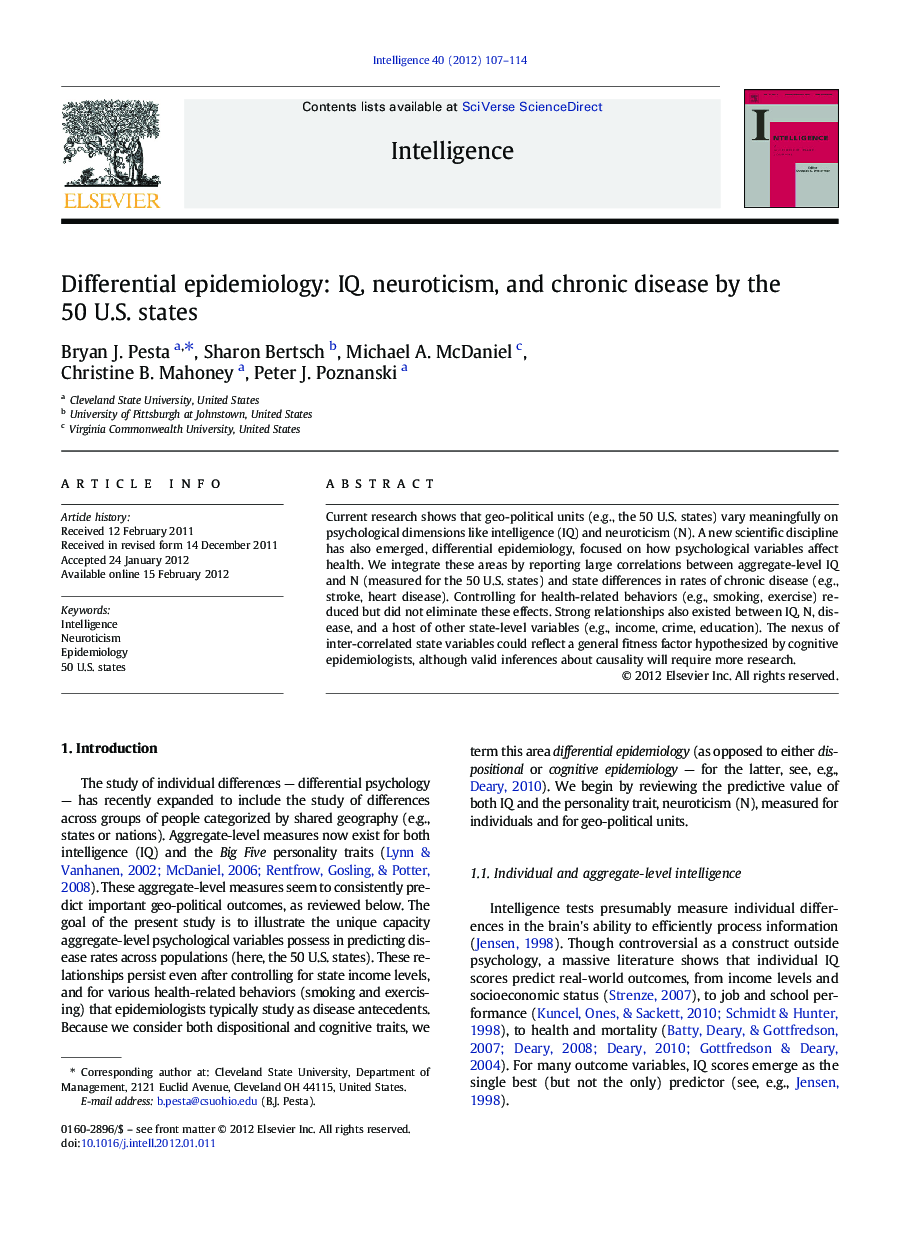| Article ID | Journal | Published Year | Pages | File Type |
|---|---|---|---|---|
| 929100 | Intelligence | 2012 | 8 Pages |
Current research shows that geo-political units (e.g., the 50 U.S. states) vary meaningfully on psychological dimensions like intelligence (IQ) and neuroticism (N). A new scientific discipline has also emerged, differential epidemiology, focused on how psychological variables affect health. We integrate these areas by reporting large correlations between aggregate-level IQ and N (measured for the 50 U.S. states) and state differences in rates of chronic disease (e.g., stroke, heart disease). Controlling for health-related behaviors (e.g., smoking, exercise) reduced but did not eliminate these effects. Strong relationships also existed between IQ, N, disease, and a host of other state-level variables (e.g., income, crime, education). The nexus of inter-correlated state variables could reflect a general fitness factor hypothesized by cognitive epidemiologists, although valid inferences about causality will require more research.
► IQ and N correlate strongly with chronic disease rates across the 50 U.S. states. ► Controlling for health behaviors (e.g., smoking) did not eliminate these effects. ► Chronic disease correlates strongly with state-level measures of well-being. ► Well-being might reflect a general fitness factor hypothesized by epidemiologists.
